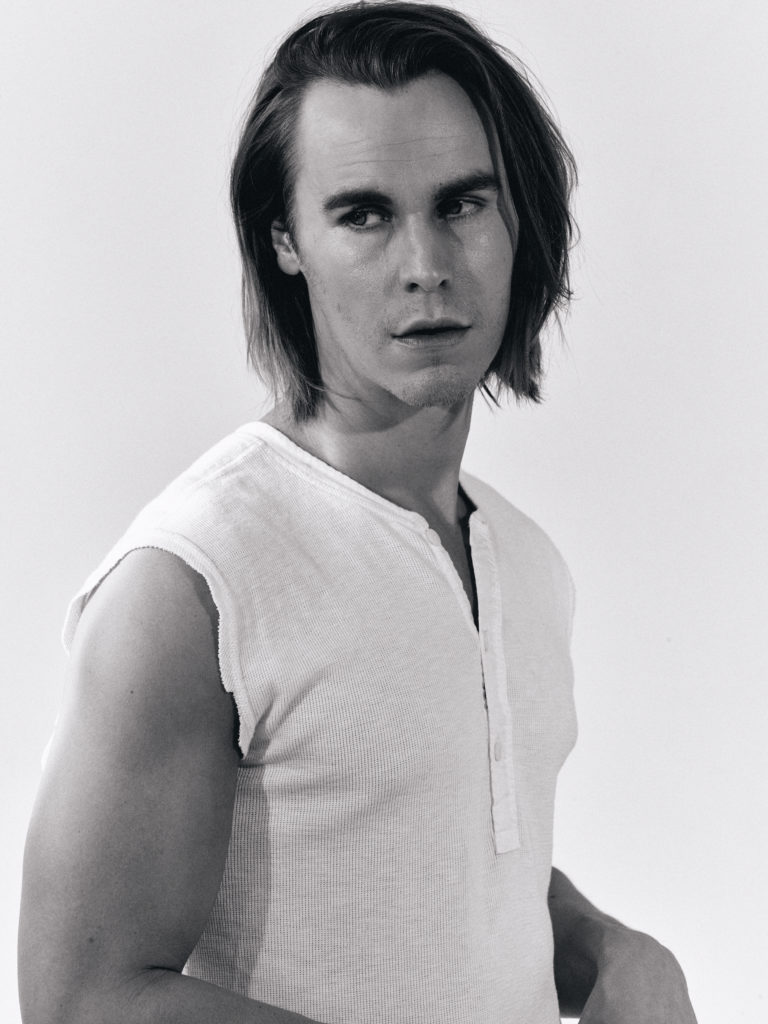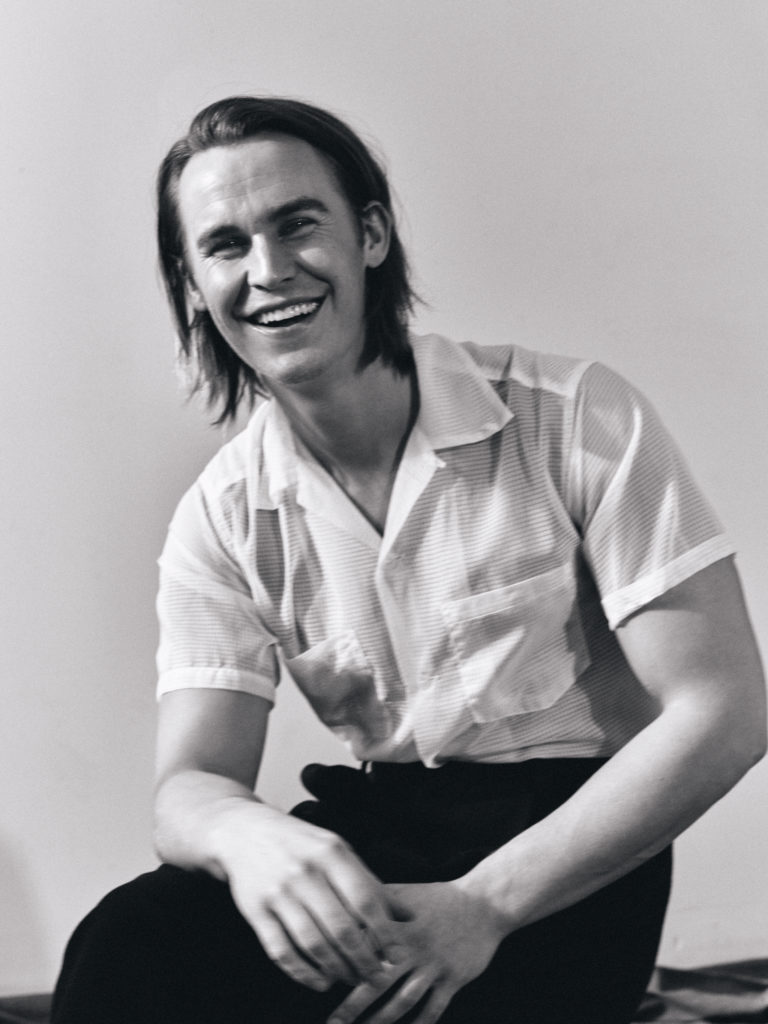
Interview by Sydney Nash
Rhys Wakefield is an Australian actor and director. His breakout role came at eighteen when he starred as Thomas in “The Black Balloon.” His role as a 15-year-old struggling to fit in his small subarban neighborhood whilst learning to accept his autistic brother, garnered Wakefield critical acclaim as well as an AACTA nomination (the Australian equivalent for the Academy Awards). Wakefield has gone on to appear in many notable projects, such as “The Purge” and “True Detective,” with his first directorial debut of a feature film in 2019 with “Berserk.” His newest project is “Reprisal,” a Hulu thriller where he plays the unforgiving gang leader Matty. ContentMode sat down in conversation with Wakefield on his new role, his professional role models and juggling the titles of both actor and director.
Q:Tell me about your childhood in Australia. What was the moment when you first decided you wanted to become a performer?
A: My older brother and I loved movies growing up. As kids in Australia, America was depicted as this picturesque, pop culture promise land – particularly in movies of that time. As a foreigner, 80s and 90s media felt particularly prosperous, at least for the depiction of the “American Dream” – or some kind of “suburban dream.” Where all your friends were simply a bike ride away, in a town where an adventure was just about to begin. As a child, I felt as though these movies were places that truly existed and I would revisit them in my mind constantly. It was these imaginary spaces that made me feel less alone, I guess, which I think is ultimately the purpose of all art. When I saw Michael Keaton in Tim Burton’s Batman and Batman Returns and then Beetlejuice, I thought it was incredibly cool – the idea you could be so many radically different people. I wanted to be a part of that world of storytelling…
I guess to a child, being an actor seemed like the obvious choice at the time because it’s like make-believe or pretend. Also, in terms of opportunity available to a young person living in the suburbs of Sydney, Australia in the early 1990s, I think it was the quickest way to gain legitimate on-set experience. I probably have Michael Keaton to thank.
As an aside, I especially loved when he played a satire of himself in Birdman.
Q: What was your first ever role?
A: I played a sailor in my high school’s theatre production of Puff, The Magic Dragon. The title is funnier to me now. It was totally off the wall, and I sang Rod Stewart’s “I Am Sailing” in it. It was everything you can imagine and more – pure theatre magic… not.
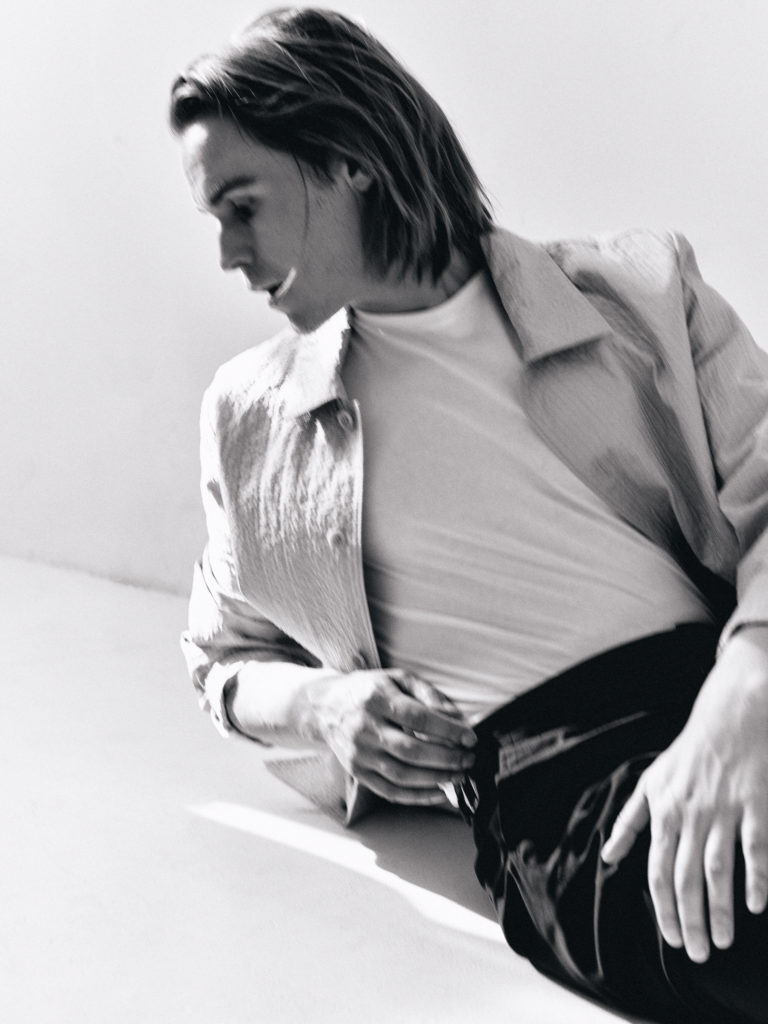
Q: What were the performances you looked to when you were younger? Who was your greatest role model?
A: I’d say Michael Keaton and Jack Nicholson in Batman. Then, seeing Danny Devito as the Penguin and the father in Matilda! When I realized that both characters were played by the same actor, my child-mind was blown. Everyone’s [mind was blown].
I also grew up watching Heath Ledger’s career evolve as he developed into the excellent artist he became. Until Heath Ledger, I hadn’t really been exposed to the thought that an Australian kid could ever become legitimately successful in “Hollywood.” I thought [Hollywood] was a place reserved for wealthy, special people who were born into it, but he proved that assumption wrong. He is, and always will be, a continued source of inspiration for me.
Q: In 2008, you starred in The Black Balloon. You were nominated for an AACTA Award for this role. How did this shape your career moving forward? How did you stay true to yourself as a performer after this newfound recognition and professional fame?
A: Public nominations and awards are tricky aspects of this industry. I understand their purpose from a business standpoint, but they’re tricky. For context, I shot The Black Balloon when I’d just turned eighteen and had graduated my high school exams only a few weeks prior to shooting. This was also amidst working fulltime on a soap opera, which I had to go straight back to at wrap of the film. I had my head down for so long that when I was nominated for The Black Balloon, it was a forced point of realization that this is not just a hobby anymore. I think it was also a realization for my family. You become cognizant of your own potential at that point, which is both helpful and destructive. Up until then, you’re quite naïve. I was just doing what I’d always done in drama classes. You commit to the story, and the rest will work out. Then, when awards happen, you start to overthink things. You fear that your next project won’t live up to the success of your previous, as though “failing” will delete your past successes from having ever existed.
There’s a certain anxiety that comes with it at first. What I’ve learned now is that “failing” is actually another word for “innovating,” and if you’re not doing it enough, you’re becoming stagnant. I don’t want to become stagnant. The Black Balloon was a very special movie. It was my first movie, and I’m so proud it received the recognition and attention it deserved. It’s now taught in Australian schools across the country. To think I had been stressing about my own high school exams whilst learning the lines/dialogue for a movie that would ultimately become a part of someone else’s high school exam is a surreal thought.
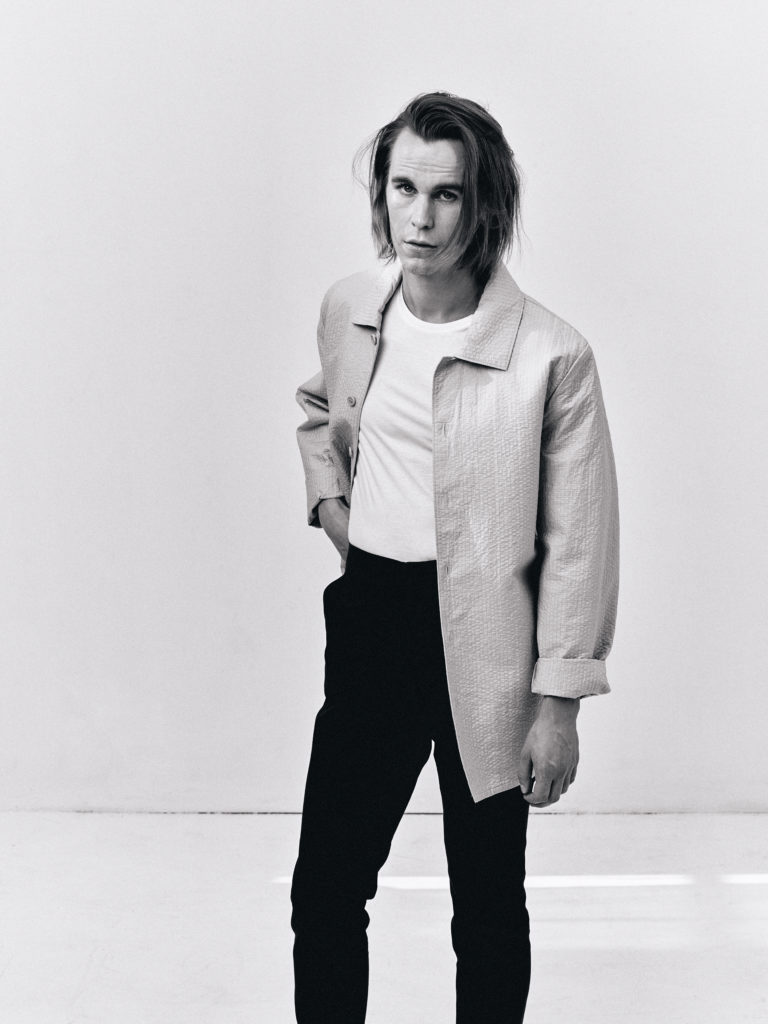
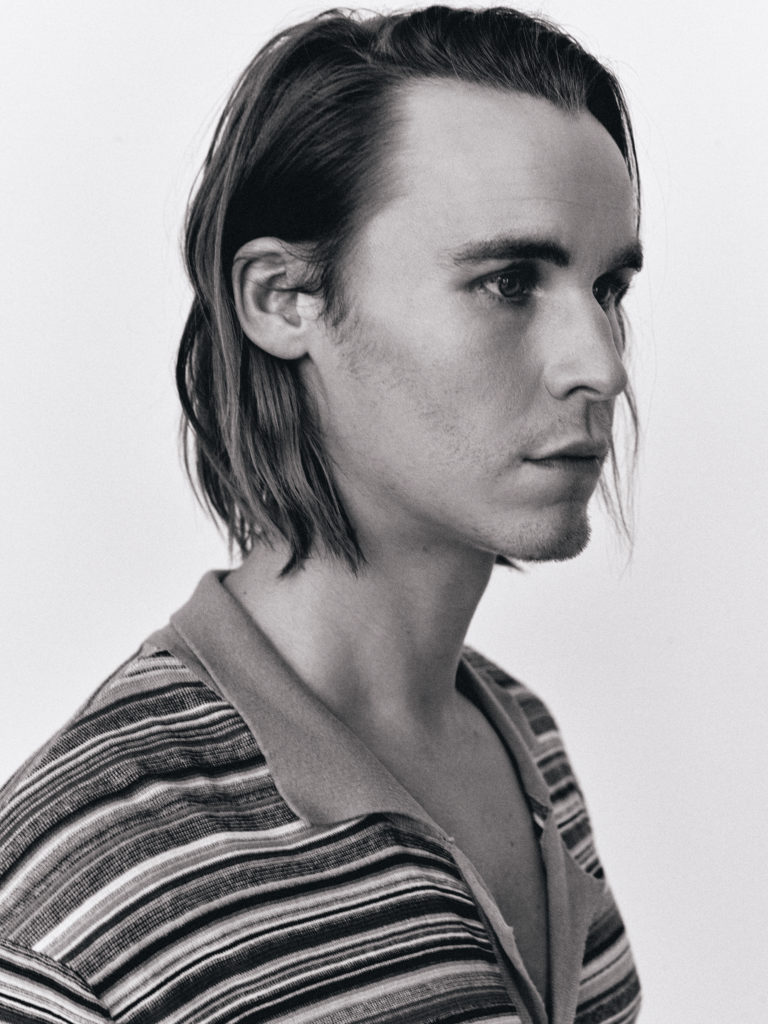
Q: What’s the most difficult role you’ve had? Which was the most pivotal for your career and why?
A: So far, it’s probably been my character the ‘Polite Leader’, in the original Purge movie. I thought that would be an obscure horror that few people would ever see because the concept was too violent to get behind. Evidently, I was wrong.
Up until that role, I had played typical boy-next-door types. The archetype of I’m happy-go-lucky with a high moral standing for every step of my journey. My role in The Purge was the opposite of this. He was violent, frightening and theatrical— three elements that posed themselves as a challenge to me. I believe this was a turning point in my career simply because my own agents at the time started to recognize me as a serious actor.
Q: You wear many hats, including actor and director. Is there one that you prefer over the other?
A: Acting has forced me to get into the psychology of characters I would never otherwise be in the mind of. It’s these insights into how another person might think that I love about the craft. It’s ever-changing, constantly posing new challenges.
Ultimately though, film is the director’s medium. It’s not the actors. I love both aspects of what I do because each informs the other. Directing energizes me in a unique way. To funnel the expression of others into your own vision, is like seeing a dream come alive before your eyes. What I learned when I directed my first feature-length film, Berserk (released this year and is available to rent on iTunes) is that when you’re able to effectively empower individuals you’ve employed on your set — you give them the space to gift you with thoughts or ideas you’d have never thought of alone. Then it’s your job to funnel that. The hive-mind, team element of it is quite electric. I’m in pre-production for a suburban sci-fi I wrote and will direct + produce with Jason Berman next year and am currently developing a science-fiction podcast with Qcode and William Day Frank, which we’ll record in February of 2020.
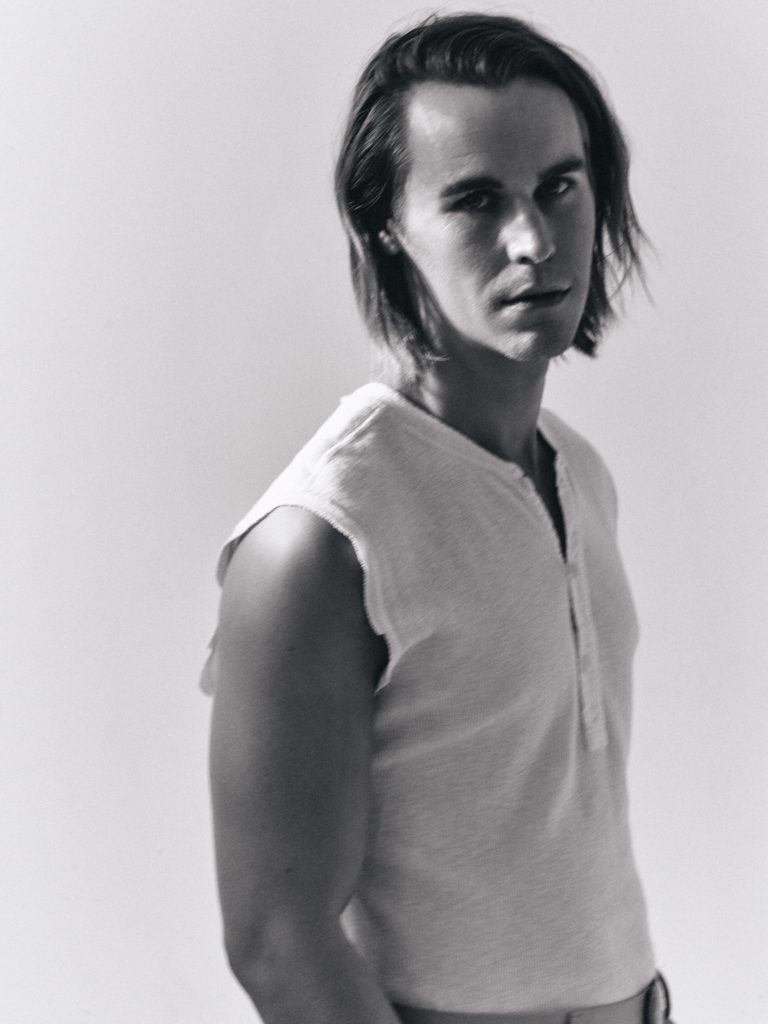
Q: You play Matty in Hulu’s Reprisal. Tell me how this role came about and a bit about the character. What drew you the most to this character?
A: Matty is an unapologetic young man who is wildly proud of his position as leader of The Three River Pheonixes, a gang he considers to be of utmost importance in the world of Reprisal. He plays by a strict code of conduct, which can drive him to make shitty decisions. However, because he’s so fervently loyal to this code, it’s difficult not to be endeared to him. Josh Corbin created such a rich and textured character on the page. It made it so enjoyable for me to play him and breathe life into him in a world The Littlefield company, Hulu and A+E Networks were able to build so successfully. Whilst he’s violent and impulsive, he’s also got a significant amount of inner turmoil going on. I really feel for him. The show is so unique, colorful and textured. I’m glad we were all able to photograph what Josh Corbin so effectively created on the page.
Q: You’ve starred extensively in both film and television. Is there one medium you prefer over the other? If so, why?
A: I have always been romantic about film being the highest form of storytelling, but I don’t know that I subscribe to that anymore. I love TV. My favorite movies are the Back to the Future trilogy, Indian Jones trilogy and Star Wars original trilogy, so maybe TV gives us the trilogy-feel we/I always loved? Maybe it’s simply about having more screen time with the protagonists we collectively respond to. Reprisal felt like I was able to shoot ten movies at once.
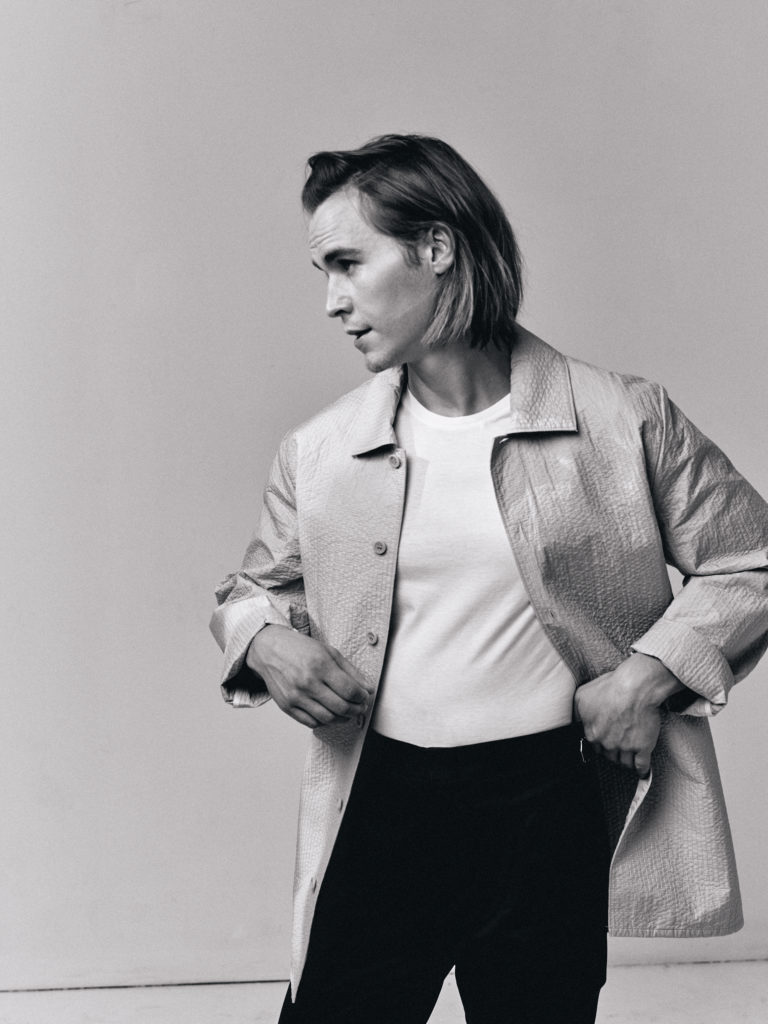
Q: As both an actor and director, which stories do you feel most compelled to tell?
A: Stories that make me feel less alone. In whatever abstract or bold way that might be. If there’s an element, theme or character that feels idiosyncratic enough to be real (even if they exist in an unreal world), it will likely resonate with someone else in an intimate, meaningful, way. It’s those elements of a story I feel most compelled to tell. Reprisal does a beautiful job on the theme of family. The one we’re born with and the one we gain over the course of our lives. I was compelled to be a part of that story.
Q: What are you looking forward to most in the next year?
A: Referring to this decade as the 2010’s. Hopefully shooting Reprisal Season 2. Travelling.
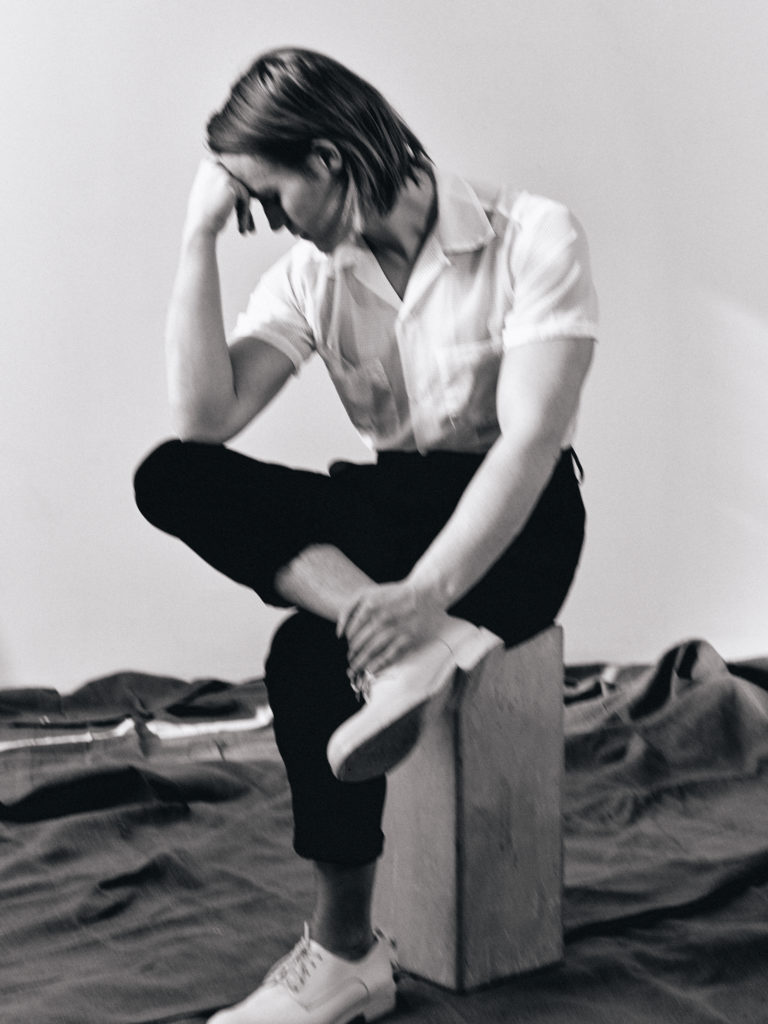
Quick Q’s
Q: What was the best advice you’ve ever received?
A: With regard to directing: “Make good decisions fast, not great decisions slow.” – James Cameron
Q: You’re not on-set or working. Where can we find you?
A: Writing, playing Xbox or swimming in the ocean.
Q: Dream co-star?
A: Michael Keaton.
Q: What was the last TV show that you binged?
A: Other than Reprisal, Succession: season one.
Q: Next vacation spot?
A: I’m heading back to Australia tonight for Christmas.
Q: Guilty pleasure?
A: A third martini.
Q: If you weren’t an actor or director, what would you be?
A: An astronaut. I want to go to space.

